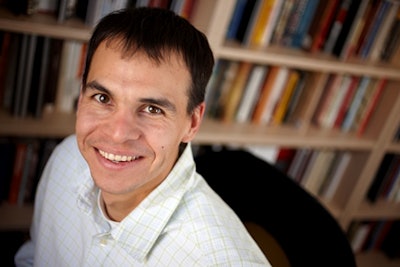
Growing up on the Round Valley Indian Reservation in Northern California, Bauer says he noticed certain omissions. “Very often native people were ignored in these parks,” Bauer recalls. “They rarely made reference to the native people who were indigenous to these areas. So I wanted to devote my time and energy to looking at the role that native people, and native workers, had in helping to create what we know about the American West.”
Bauer says his work differs from other research that has been done on the Round Valley community and other reservations. “Much of [the research] that [has] been done tends to look at what non-native people did to native people; what my work emphasizes is what Native Americans themselves have done and are doing.” He relies heavily on oral history records and on his own oral interviews.
Bauer says he was influenced by scholars who have done research on African-American slavery, particularly “those scholars who used the WPA slave narrative that allowed African-American voices to come in and interpret their own situations.”
Bauer uses his teaching and writing as part of his ardent battle against “preconceived notions about what Native American history is about and who native peoples are.
“Sometimes I get a bit frustrated,” he says, “because students will talk about Native American culture as if it is one culture, when in fact there are more than 500 sovereign Indian nations in the United States.”
Bauer, who is Wailacki and Concow and teaches American West and Native American history, requires his students to attend an annual fall powwow that is held in Las Vegas, so they can experience a native community gathering.














